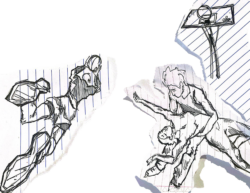Yesterday was voting day for NFL owners as they attempted to clear the slate of issues that needed to be decided before the end of their winter meeting. Of the several topics that were put on the table, two controversial decisions look to make significant changes to the game.
The first is the elimination of the “Tuck Rule” which stipulated that any forward motion in a quarterback’s arm constitutes a pass, even if he’s just trying to tuck the ball. Therefore if the ball was knocked out in the process, it is ruled an incomplete pass instead of a fumble. The voting yesterday decided that this rule no longer need apply and if the quarterback is attempting to tuck the ball and loses it, the ruling will be a fumble. As it should be.
The logic behind the “Tuck Rule” was incredibly lacking. It gave the quarterback who changes his mind when in the passing motion an unnecessary crutch to rely on. If the quarterback decides that he does not want to throw the ball anymore and tries to tuck the ball in order to protect it when hit by a defender, it shouldn’t be considered equivalent to a pass.
Having the ball knocked away after deciding not to pass and then getting a do-over because the play was ruled an incomplete pass cuts too much slack for the quarterback. It also does not properly reward the defenders, who were able set an effective pass coverage and halt the quarterback.
Apparently it just took one more game-changing play in order to get the league to realize this rule needed to go. The most famous “Tuck Rule” controversy came in the 2002 AFC divisional playoff game between the Oakland Raiders and the New England Patriots. New England was down three with only a few minutes left when quarterback Tom Brady was hit and lost the ball as he attempted to tuck. The play was originally called a fumble, which would have given the Raiders the win, but the call was overturned in accordance to the rule. The Patriots then went on to kick a field goal to force overtime and then kick another field goal for the win.
But this past season, the rule caused tension once again when the Denver Broncos lost to the now Super Bowl Champion Baltimore Ravens. Denver QB Peyton Manning had just begun his throwing motion when he was struck by a defender and lost his handle. The Ravens recovered and because Manning had not been able to get his other hand on the ball in an attempt to tuck, the referees ruled that the “Tuck Rule” did not apply and therefore the fumble stood.
So to put things in context, because Manning had been in a throwing motion when he dropped the football instead of trying to tuck it into his body, the play was not ruled an incomplete pass. Had he stopped his passing motion and made an effort to tuck the ball instead, the call would have been an incomplete pass. Good riddance “Tuck Rule.”
The second and most controversial rule change is the new regulation that players outside of the tackle box or at least three yards downfield can no longer lead with the crown of their helmet. And with that vote, every running back in the NFL will now have to alter the way he plays the game. The league had already ruled that defenders could not crack their opponent’s head with the tops of their helmets and now the offensive side of the ball has been brought up to the same standard.
Although this is a great stride in improving player safety and moves the violent game in the “right” direction, this rule change will cause a whole new set of strife for players and officials. Running backs will now be expected to crush the defender trying to tackle them only by lowering their shoulder, but be careful! Don’t let the top of your helmet touch the helmet of the guy who’s lurching straight at you! Running backs have enough to worry about when they are running full speed into a group of massive linebackers. Forcing them to adjust mid-contact so that the crown of their helmet does not hit the defender is undue and illogical.
It is completely understandable that the league wants to make the game safer, but this new rule is trying to solve an inevitable problem. When a running back lowers his shoulder, his head has to lower as well. Football is an inherently dangerous game and that is why only a select group of guys can compete in the NFL. The league should do its best to improve safety, but some aspects of football are and always will be unsafe.




